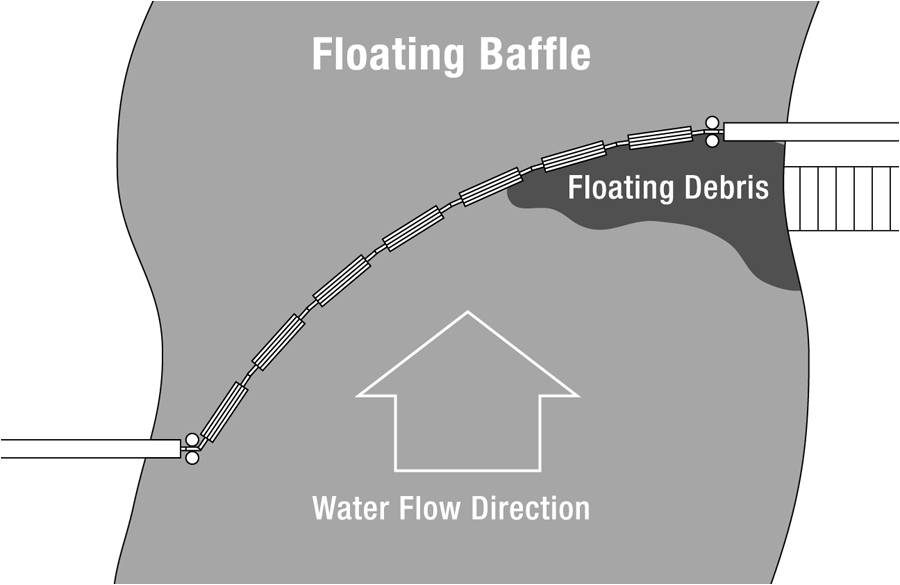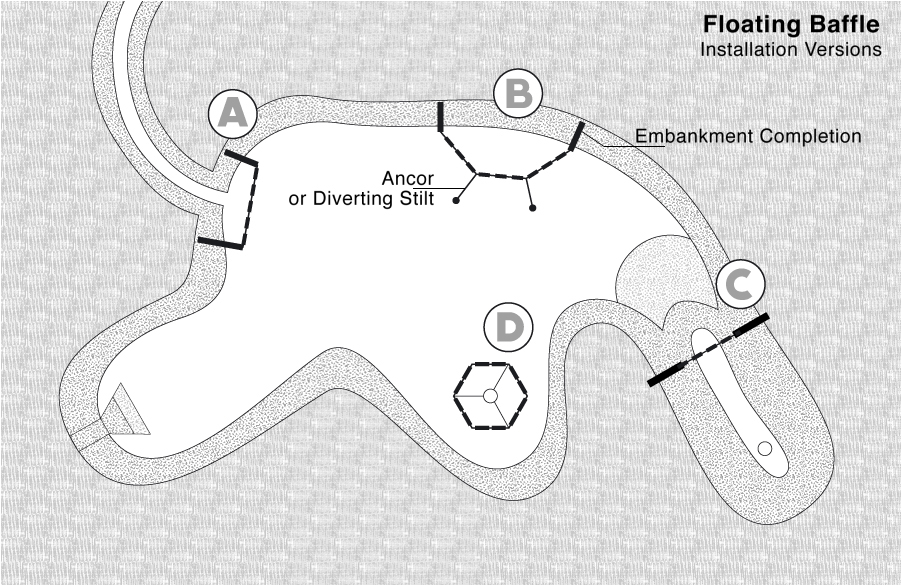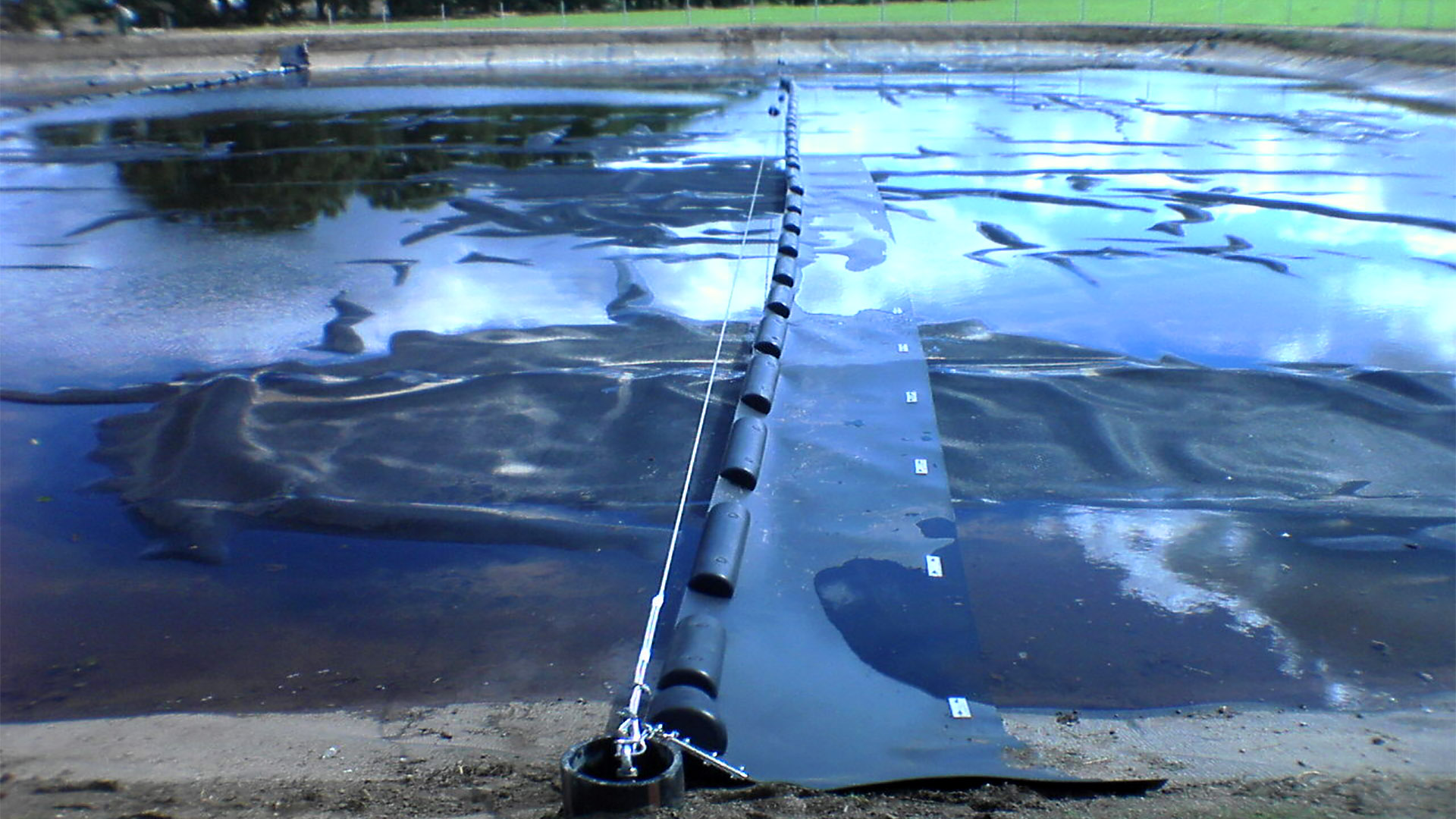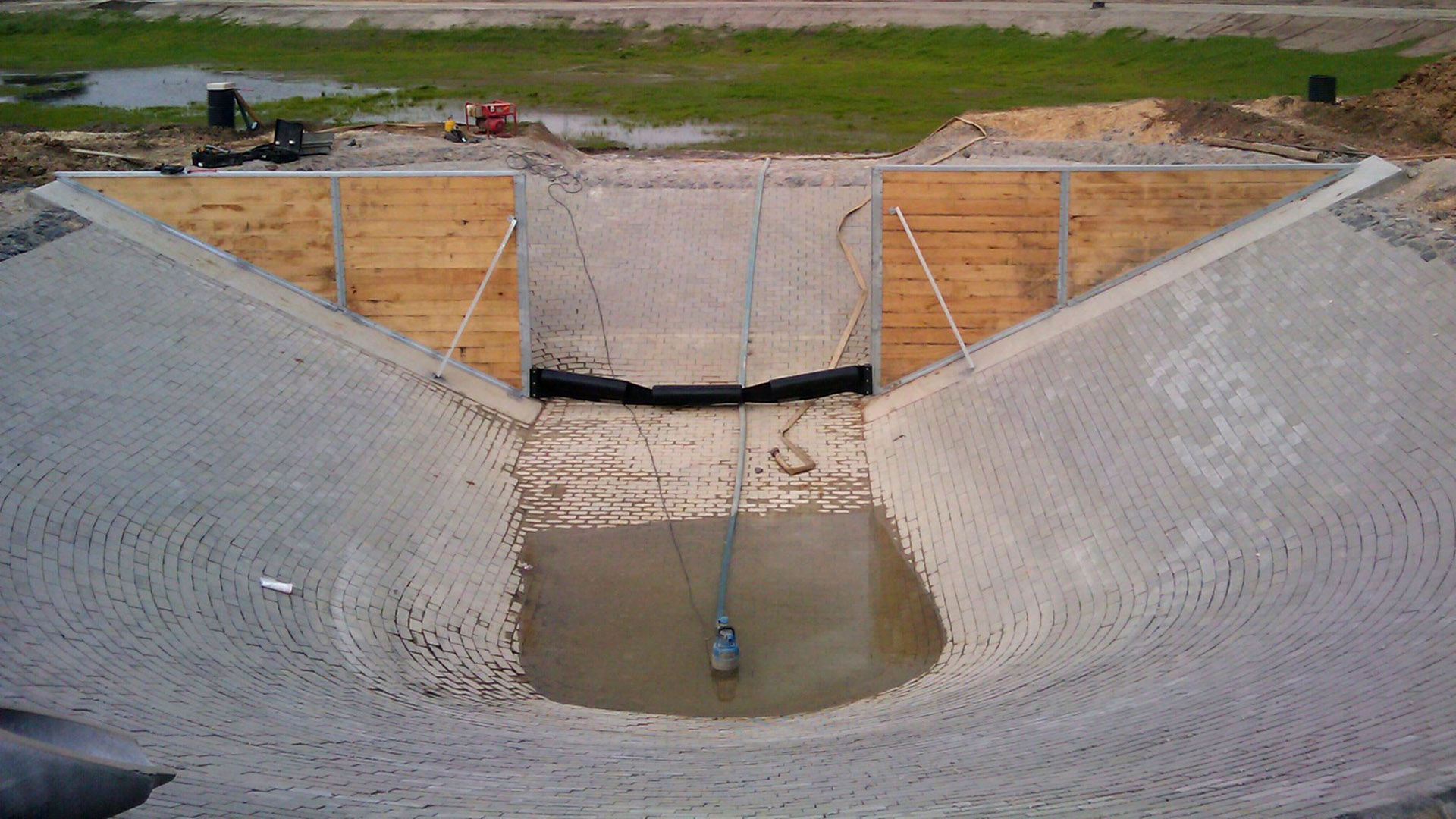

Floating diving wall
A floating diving wall retains all substances that float on the water surface and adapts to different water levels. It serves as a lightweight material separator in hydraulic engineering and is used wherever a construction method firmly anchored to the embankment is possible.

The floating diving wall is adaptable
Two embankment walls, which usually consist of stable wooden planks or concrete walls, are connected by floating plastic elements. These adapt flexibly to the respective water level using running rails. When the water level rises, the passage under the barrier increases. Water can flow off at a steadily slow rate. Oil or floating debris is retained on the surface by floating bodies.
Maintenance-free for 20 years
The embankment walls of the floating diving wall are usually installed offset to the direction of the water flow. This determines where the debris collects and can be more easily skimmed off at a collection point. A floating diving wall takes on its task maintenance-free for around 20 years. A floating diving wall is completely planned, built, installed, and handed over to the customer, ready for operation.

MATERIAL
APPLICATION AREAS





